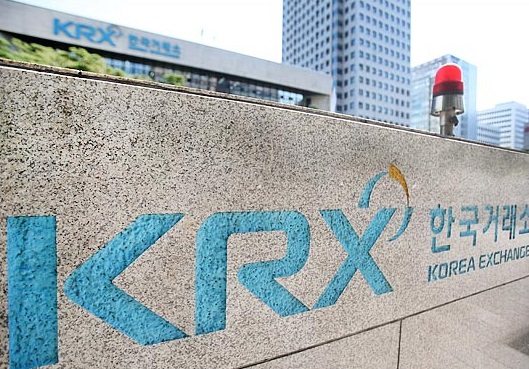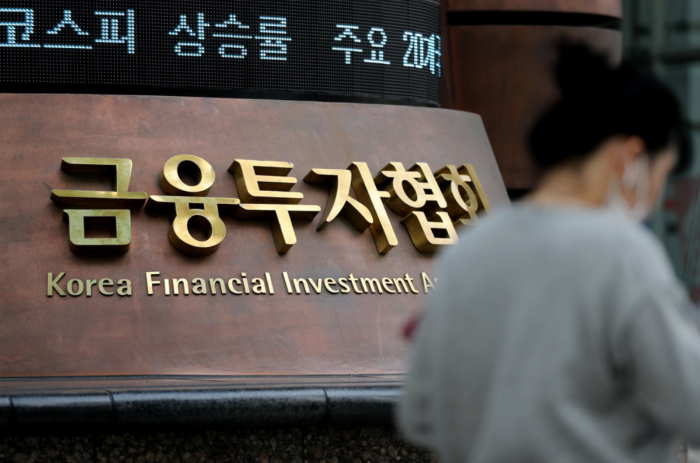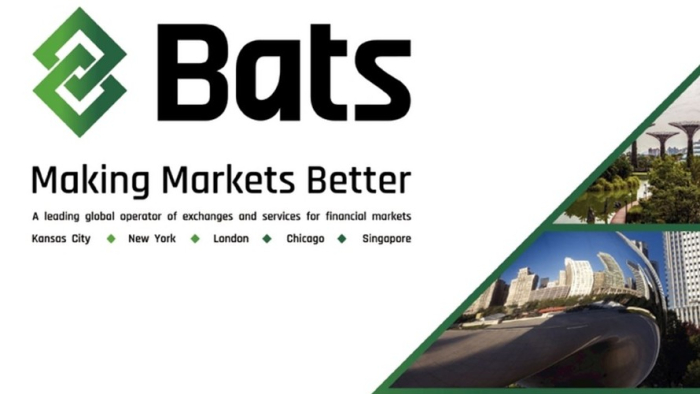Markets
Bain report renews debate on alternative trading system in Korea
Moves to set up another trading venue previously faced public backlash due to profitability concerns
By Jun 28, 2021 (Gmt+09:00)
5
Min read
Most Read
LG Chem to sell water filter business to Glenwood PE for $692 million


Kyobo Life poised to buy Japan’s SBI Group-owned savings bank


KT&G eyes overseas M&A after rejecting activist fund's offer


StockX in merger talks with Naver’s online reseller Kream


Mirae Asset to be named Korea Post’s core real estate fund operator



With South Korea’s stock markets maintaining bullish momentum this year, debate about setting up an alternative trading system (ATS) in the country is resurfacing. An ATS is a trading venue that serves as an alternative to trading through a public exchange.
According to sources on June 28, the management consulting firm Bain & Company recommended that Korea set up an ATS in its interim report requested by an ATS task force led by the Korea Financial Investment Association (KOFIA).
Other members of the task force include the country’s six major securities firms: KB Securities Co., Samsung Securities Co., NH Investment & Securities Co., Korea Investment & Securities Co., Mirae Asset Securities Co. and Kiwoom Securities Co.
Each of the six firms is reported to have agreed to invest an 8% stake in the ATS, assuming its successful establishment, which will have an initial capital of 80 billion-100 billion won ($71 million-$89 million) in total.

“Unlike other major countries where sustained competition is driving stock market growth and innovation, Korea has delayed the qualitative growth of its stock market infrastructure largely due to the monopoly position held by the Korea Exchange,” said Bain.
The Korea Exchange, established in 1956, is South Korea’s sole securities exchange operator. In contrast, traditional US exchanges such as The New York Stock Exchange (NYSE) and Nasdaq only take up a 43% share of the American stock market, according to Bain.
Bain’s report highlighted that in the US, 28% of the stock market is taken by either ATS venues such as UBS ATS and JPM-X or those that have ATS roots, such as BATS Global Markets, which started as an ATS in 2005 but later became a licensed US stock exchange in 2008.
The consulting firm projected that Korea’s ATS will be able to take up a 12% share of the country’s stock market and generate an annual operating profit of 36 billion won ($32 million) within five years of establishment.
“The establishment of an ATS will drive competition among the stock trading bodies and will thus innovate the country’s capital markets,” Bain said.
KEY FEATURES OF ALTERNATIVE TRADING SYSTEM
Typically, an ATS provides cheaper transaction fees and provides more options for investors such as after-hours trading. The Korea Exchange currently takes 0.0027% of every transaction from investors. The ATS task force said it will be setting a lower rate than the Korea Exchange.
Sources also say that the new venue will also offer investors a faster trading system. It currently takes around 0.015 of a second to purchase or sell shares at Korea Exchange’s stock markets. On the other hand, in the US where ultra-high-frequency trading is a common practice, the time taken per trade is almost one hundred times less.
Experts highlight that the new ATS, with faster trading options than the Korea Exchange, will be able to draw a large number of global institutional investors specializing in algorithmic trading.
At the same time, however, others note that if the practice of high-frequency trading becomes excessive, it will have a negative impact on market stability. They stress that even the US is having ongoing discussions to strengthen regulations on high-frequency trading.
Other features of alternative trading systems include that they are usually less regulated than public exchanges and that firms cannot be listed on an ATS.
In Korea, however, the industry says that the country’s regulations are still tough for an ATS. Its Financial Investment Services and Capital Markets Act currently prohibits the trading of exchange-traded funds (ETFs) on an ATS.
“In order for the ATS to remain competitive and sustainable, exchange-traded products (ETPs) including ETFs must be allowed for trading. America’s BATS, which started off as an ATS and later became a licensed exchange, was able to grow rapidly due to high ETF trading volume,” said Nam Gil-nam, the head of capital markets at the Korea Capital Market Institute (KCMI).

Korea’s daily ETF trading volume last year was 3.8 trillion won ($3.4 billion), a significant 188.3% growth from 1.3 trillion won ($1.15 billion) in 2019.
CONCERNS AND POTENTIAL SOLUTIONS
The campaign to set up an ATS in Korea initially kicked off in 2011 but faced wide backlash from the public and civil society organizations in Busan, where Korea Exchange’s headquarters are located, due to concerns about profitability.
Korean investors until 2019 often self-mockingly called the local bourse Kospi “boxpi,” as its index had been largely boxed in between 2,000 and 2,500 points for several years. With the country’s main bourse far from being profitable, the discussion to set up another trading venue previously gained little support.
Analysts say that the idea regained momentum last year when the stock market was more profitable, and highlight that now might be the right time to push the agenda further with Kospi hitting 3,300 points.
At the same time, even if public consensus becomes more favorable for creating an ATS, industry experts say that at least two more years will be needed to set up a relevant IT infrastructure, receive approval from financial regulators and actually run the trading venue.
Meanwhile, sources report that the Korea Exchange is not against creating a rival, as it fears being under public control again. The Korea Exchange, first privatized in 1988 with the government selling all its stake in the stock operator, came under public control in 2009 and remained as a public institution until 2015.
Experts highlight that the government still has legal grounds to make Korea Exchange a public unit again if its monopoly continues. For such reasons, market insiders say that an ATS in Korea will allow Korea Exchange to strengthen its autonomy and also grow the country’s stock market trading volume.
South Korea’s stock market capitalization currently ranks 13th in the world, whereas it ranks 10th in terms of GDP.
“Korea’s capital market will see qualitative growth fueled by more competition between stock trading institutions,” added KCMI’s head of capital markets Nam Gil-nam.
Write to Sung-mi Shim at smshim@hankyung.com
Daniel Cho edited this article.
More to Read
-
 Shipping & ShipbuildingHanwha Ocean shares sink after KDB's sale of 4.2% stake
Shipping & ShipbuildingHanwha Ocean shares sink after KDB's sale of 4.2% stakeApr 29, 2025 (Gmt+09:00)
-
 EnergySouth Korea nears Czech nuclear deal; Doosan, related stocks fly high
EnergySouth Korea nears Czech nuclear deal; Doosan, related stocks fly highApr 25, 2025 (Gmt+09:00)
-

-
 Business & PoliticsSeoul, Washington agree on July tariff deal framework in '2+2' trade talks
Business & PoliticsSeoul, Washington agree on July tariff deal framework in '2+2' trade talksApr 25, 2025 (Gmt+09:00)
-

Comment 0
LOG IN


